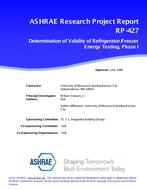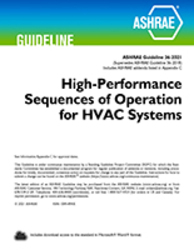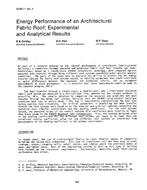The net air change rate of a mechanically ventilated building is determined by a complex interaction of the exterior environment, the building envelope, the mechanical ventilation system, and the building’s interior configuration. The resultant air change rate includes both intentional outdoor air intake through the air handlers and uncontrolled air infiltration through the building envelope. The outdoor air intake rates are determined by the building control system through fan speeds and damper positions in response to changing exterior conditions and internal loads. In the design and operation of ventilation systems, the envelope infiltration rates are assumed to be negligible. In addition, the outdoor air intake rates, as well as airflow rates through the fans, are assumed to equal their design values. In reality, the phenomena of air exchange in mechanically ventilated buildings is not well understood and these assumptions may not always be valid. Pressure differences across the building envelope induced by weather conditions and ventilation system operation may lead to significant amounts of uncontrolled air infiltration through leaks in the building envelope. Also, outdoor air intake rates and other ventilation system airflow rates may be quite different from their design values.
Tracer gas decay measuring techniques exist to determine whole building air exchange rates. This paper presents two new measuring techniques to determine simultaneously both the amount of air exchange due to intentional outdoor air intake and the amount due to uncontrolled envelope infiltration. One of these techniques was applied to a new office building as a demonstration of the procedure, and to investigate the air exchange characteristics and mechanical ventilation system performance in this particular building. Using a tracer gas measuring technique in combination with multithermistor airflow-rate measuring systems, intake and infiltration rates were measured under a range of weather conditions and outdoor air intake rates. The results indicate that the outdoor air intake rates for this building are often well below their design values, a significant percentage of the net air exchange rate of the building is due to envelope leakage, and the amount of envelope leakage is dependent primarily on the outdoor air intake rate.
Units: Dual
Citation: ASHRAE Transactions, 1987, vol. 93, pt. 2, Nashville, TN
Product Details
- Published:
- 1987
- Number of Pages:
- 15
- File Size:
- 1 file , 1.6 MB
- Product Code(s):
- D-NT-87-3057


